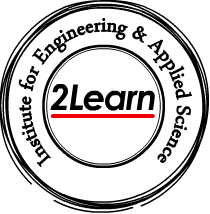 The journey from the Agrarian Era to Industrial Era to Information Technology Era and now to the Artificial Intelligence Era has been momentous and tumultuous. The grand challenges of the next 100 years would require humans to solve problems and face uncertainties that we have never faced before. According to World Economic Forum (2016), the top-most skill for the 4th industrial revolution by 2020 is Complex Problem Solving.
The journey from the Agrarian Era to Industrial Era to Information Technology Era and now to the Artificial Intelligence Era has been momentous and tumultuous. The grand challenges of the next 100 years would require humans to solve problems and face uncertainties that we have never faced before. According to World Economic Forum (2016), the top-most skill for the 4th industrial revolution by 2020 is Complex Problem Solving.
Students must equip themselves with the ability to think critically, creatively, communicate effectively and solve problems at all levels specially at the Tertiary level. Specifically Engineering students are required to have skills in knowledge acquisition, knowledge synthesis, reasoning ability, problem analysis, alternatives’ evaluation and engineering operation. Of these, Self-Learning ability and Problem Solving are rated as the top most abilities desired by Employers.
Employers have voiced that the graduates lack adequate Technical, Cognitive and Linguistic skills. They also believe that the key they are looking for lies not in mere cognitive knowledge, but its application to solve real world, ill-structured problem. Real world problems are quite different from the well-structured ‘perfect-condition’ classroom problems, where students only required to translate problem-narrative into equations and solve the equations to validate that the values satisfy the problem. This is a linear process that students memorize and habituate to. It develops students with superficial engineering knowledge rather than understanding it profoundly.
For students to be able to solve ill-structured problems as encountered in real life situations, they must be equipped with sufficient conceptual framework, and practice of problem solving. The Institutes and lecturers are charged with the responsibility to structure and deliver the engineering courses in a manner that helps students develop these skills. Some of it may be through project work and internships, but a substantial part would be through classroom discussion, exploration and analysis of engineering concepts and their application.
However the situation from the Faculty perspective is that a) Students come with poor pre-knowledge and foundation skills (poor study skills, poor linguistics etc), b) they seem to have a resistance towards hard work and they avoid stretching beyond their comfort zone, and c) the course coverage itself leaves low/no time for interaction and vision building.
From Student’s perspective many of the concepts taught are theoretical and will never be applied in practical life. They also feel that many teachers are just biding time and appear indifferent to teaching or student performance. Course coverage is slow at commencement and rushed towards the end of the semester. Insufficient subject pre-knowledge frustrates students who don’t feel in control of their learning in or outside the classrooms.
Currently, in the Indian context, much of the available classroom time is spent in just covering the course curriculum and preliminary problem solving. Therefore, not enough time or opportunity is left for students to come prepared to the classroom to a sufficient degree to engage with the Teacher for meaningful exploration of ‘real-world complex problem’. On the other hand, with each passing year, rising industry expectations require ever-larger exposure to, and coverage of, complex core concepts to get students up to the required level.
In totality, the situation is becoming grim with each passing year. This situation is endemic at all levels, Diploma-Engineering, Graduate-Engineering or Applied Sciences. Evidently the student must look beyond the classroom teaching to uplift their lot.
A fresh approach to learning, beyond just passing the exams, is offered by 2Learn. The key feature of 2Learn is the method and schedule followed for the conduct of courses. The probability of success for students who will follow 2Learn’s content, curriculum and method with certainly gain a loyt more than just flying colors in their exams.
